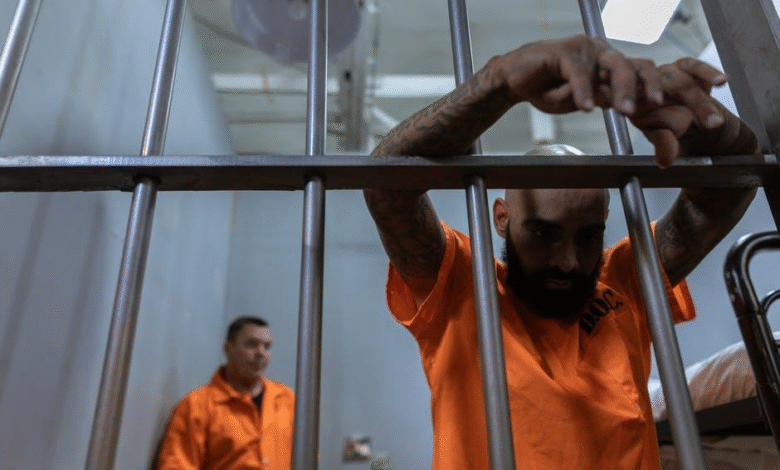Understanding the Bail Bond Process: A Comprehensive Guide

Ever wondered what happens after someone gets arrested? It’s not just about going to jail and waiting for a court date.
The bail bond process can be confusing for many people. With unfamiliar legal terms and urgent decisions, it’s easy to feel overwhelmed.
Knowing how bail works can ease stress and help make smart choices. Whether helping a loved one or preparing just in case, learning the process is important.
This guide breaks down each step in a clear and friendly way. By the end, readers will feel more confident and informed about the entire bail bond process.
What Is Bail and Why Does It Matter?
Bail is money paid to the court to allow a person to stay out of jail while waiting for trial. It acts like a promise that the person will come back for their court dates.
Judges set bail amounts based on several factors, like the type of crime, flight risk, and criminal history. Some charges come with automatic bail amounts, while others require a bail hearing.
Bail helps reduce jail overcrowding and protects the rights of the accused. If the person returns for all court appearances, the bail is usually returned.
Missing court can lead to loss of bail and new legal trouble. Understanding bail is the first step toward navigating the legal system.
Different Types of Bail Options
There are different types of bail that someone might be offered. The most common is cash bail, where the full amount must be paid up front.
Surety bonds involve a bail bondsman helping cover the cost for a fee. Property bonds allow people to use property as collateral.
Personal recognizance is when the person promises to return to court without paying money. Citation releases can happen for minor offenses, letting someone go with a ticket.
Judges decide which type of bail fits the case. Each option has rules and risks.
How Bail Amounts Are Decided
The judge decides the bail amount at a hearing. They look at the seriousness of the crime when setting bail.
They also check if the person has a criminal past or is likely to run away. Someone with strong community ties might get a lower bail amount.
If the crime was violent or dangerous, bail could be denied. Judges also look at whether the person has a job, family, or local support.
Bail must be fair and not used as a punishment. It’s set to ensure the person returns for court without staying in jail.
What Is a Bail Bondsman?
A bail bondsman is a professional who helps people pay bail when they can’t afford it. The bondsman charges a non-refundable fee, often around 10% of the total bail amount.
In exchange, they promise the court that the person will show up for trial. If the person runs away, the bondsman must pay the full bail to the court.
To avoid this, bondsmen sometimes hire bounty hunters to find people who skip bail. Using a bondsman can be helpful for families without large savings.
They usually require some form of collateral, like a car or house. Bail bondsmen must follow state laws and be licensed.
The Step-by-Step Process After Arrest
After an arrest, the person is taken to jail and booked into the system. Booking includes taking fingerprints, photos, and recording personal details. Then the person waits for a bail hearing or learns the set bail amount.
Family or friends can call a bondsman to get help posting bail. The bondsman explains the fees and signs an agreement.
Once bail is posted, the person is released with instructions about the court. It’s important to follow all court orders after release.
Your Rights During the Bail Process
People have rights even after an arrest. One of those rights is to be considered for bail.
Bail should be set at a fair amount, not used to punish. The accused also has the right to know the charges and be represented by a lawyer.
A person should be treated with respect and not forced to talk without an attorney. The right to a speedy trial is also protected by law.
People can ask for a lower bail if the original amount is too high. Knowing your rights can help avoid unfair treatment.
What Happens If You Can’t Pay Bail
Not everyone can afford to pay bail or work with a bondsman. If bail isn’t paid, the person stays in jail until the court date.
Some areas offer pretrial programs that let people go without bail. Family or legal help may also ask the judge to reduce bail.
Staying in jail can affect jobs, families, and mental health. It’s not fair for people to suffer just because they can’t pay.
Bail reform is being discussed in many places to fix these issues. The goal is fairness, not punishment.
Common Mistakes to Avoid
One big mistake is missing a court date after being released. Always mark court dates on a calendar and plan.
Giving false information during booking or bail can also cause problems. Don’t ignore bail bond agreements or skip calls from the bondsman.
Using a fake address or avoiding contact with legal offices is risky. People should never leave town without telling their lawyer or the court.
Lying or hiding can lead to arrest and new charges. Following rules and staying honest builds trust in the process.
Choosing the Right Bail Bondsman
It’s important to choose a trusted and licensed bail bondsman. Look for reviews and check for licenses before signing anything.
A good bondsman explains the process in clear terms. They should be available to answer questions at any time.
Avoid anyone who asks for extra fees or makes false promises. Ask if they’ve helped people with similar cases before.
Local experts often know the court system well. People looking for help with bail bonds in Sanford, FL, for example, should look for companies with a strong reputation and knowledge of local courts.
Making Sense of the Bail Bond Process
Understanding the bail bond process helps reduce stress during difficult times. From arrest to release and beyond, each step can be handled with care and preparation.
Knowing the right questions to ask, the types of bail available, and who to trust makes a big difference. Mistakes can lead to serious problems, but good information keeps things on track.
Bail is not just about money-it’s about rights and responsibility. Be ready before the unexpected happens.
Did you like this guide? Great! Please browse our website for more! NewsDipper.co.uk


